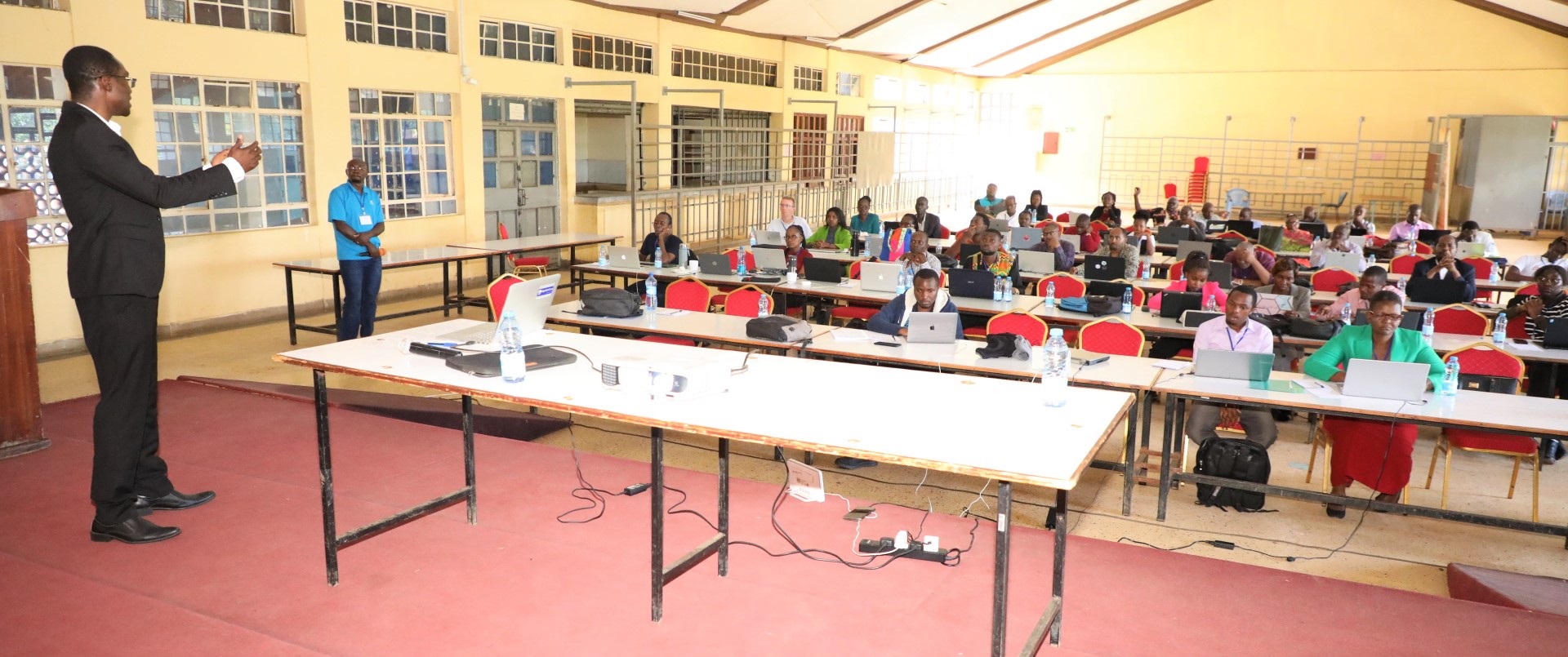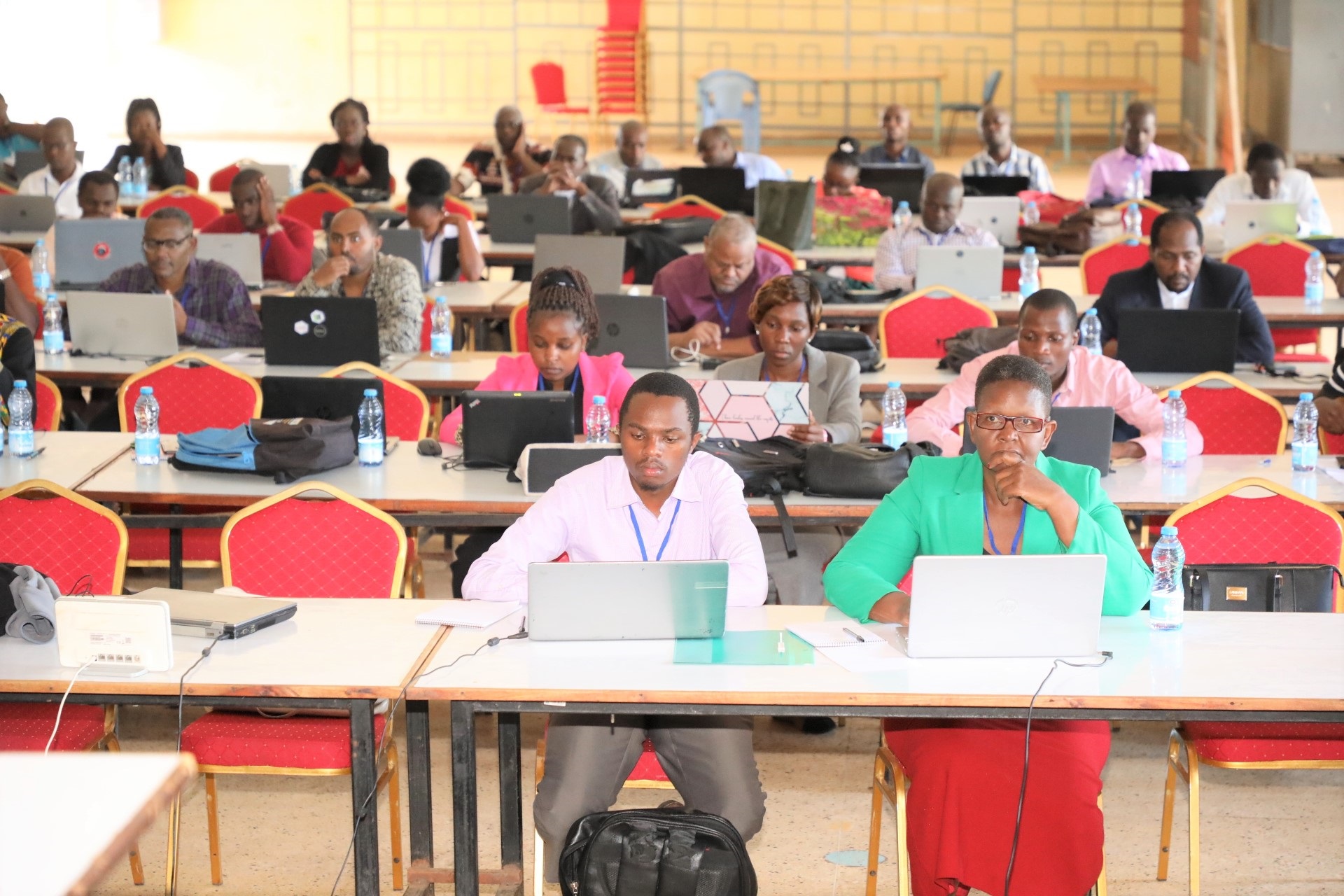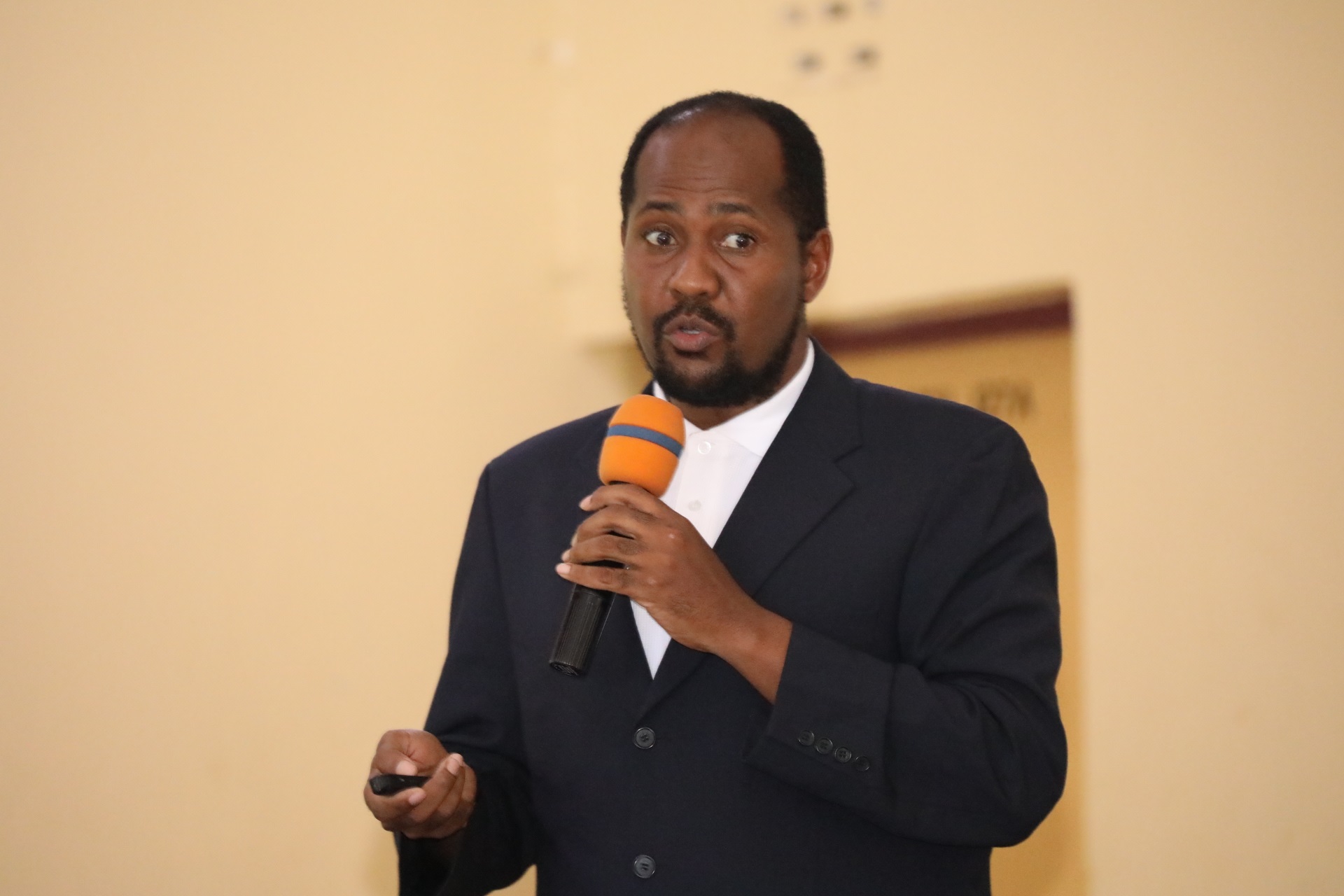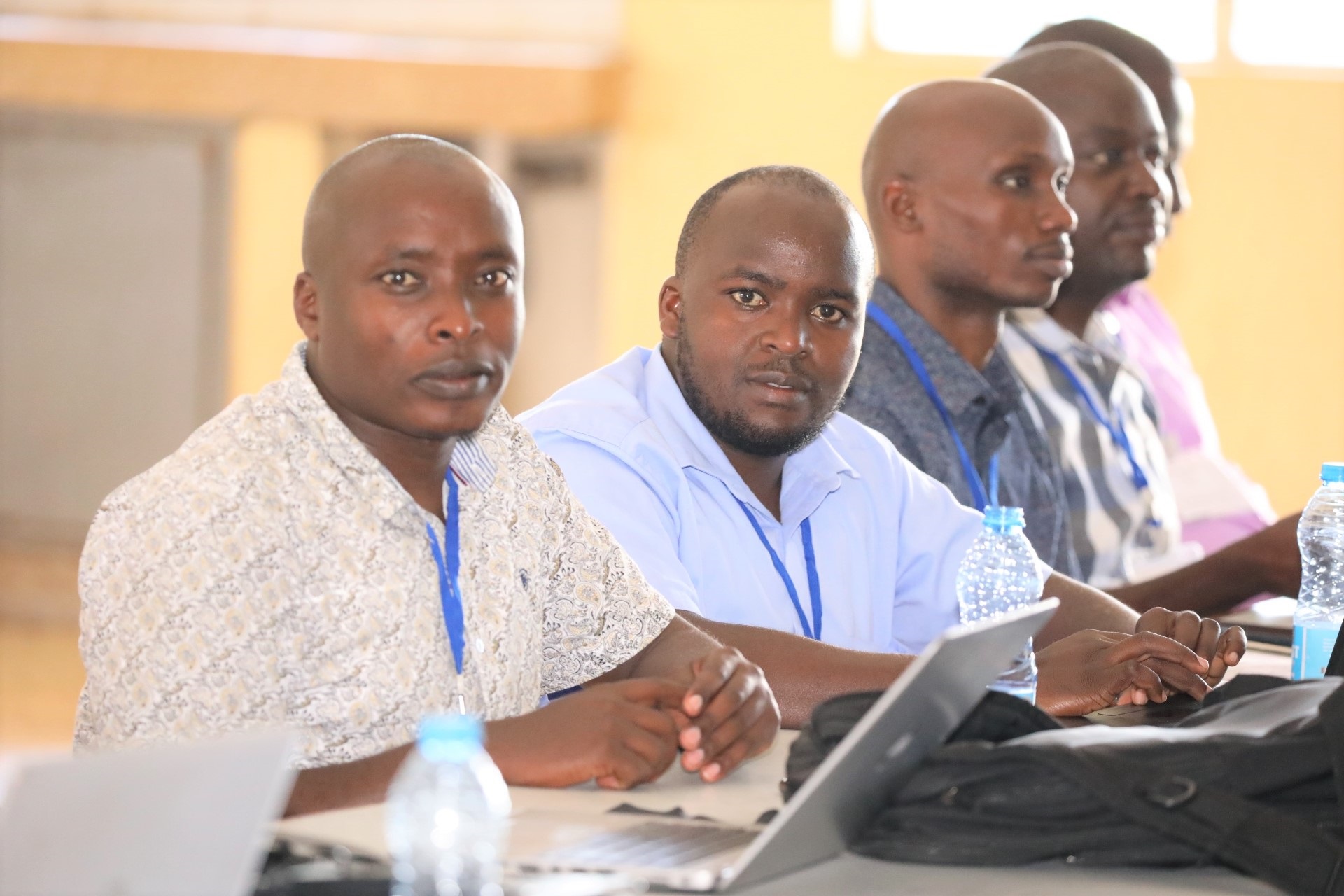The participants of the African STACK Conference for Undergraduate Mathematics.
Masinde Muliro University of Science and Technology is hosting the Innovations in Development, Education and Mathematical Sciences (IDEMS International) for a five-day conference to chat roadmap for the transformation of African Maths education. This marks the first-ever . STACK is the world-leading open-source automatic assessment system for mathematics and STEM. The event has attracted participants from Europe, MMUST, and other Universities in Kenya. It has provided a platform for lecturers to present their experiences in incorporating STACK into undergraduate courses, their methodologies, and their impacts. The conference commenced on 19June 2023 and will officially come to a close on 23June 2023.
IDEMS International is a company formed by Mathematical Scientists with long-term experience working in education and development, looking to have a greater impact by leaving academia. They develop courses under open licenses as part of their social mission to improve education. Besides this, they also focus on developing courses that enable high-quality student feedback through automated assessment, which they use STACK for providing Mathematical Science courses assessment.

Mr. Wastalas Montognon addressing the participants.
African universities began incorporating STACK assessments into their undergraduate courses, to deal with issues of large class sizes (some classes are over 1,200 students) with a single lecturer and no additional human resources. A concerted effort was started by groups of Universities, with the support of IDEMS International, to promote STACK in the region through open resources. This has slowly spread throughout the continent, with the objective of full curriculum coverage. Key stakeholders will have an opportunity to extend their collaboration and accelerate the integration of STACK.
One of the facilitators, Mr. Borio Santiago, who made a presentation on ‘Seeing African Challenges as Opportunities to Lead’ explained how STACK as a program has revolutionized how studies are undertaken. Quoting techniques such as the provision of structures to consume knowledge, Mr. Santiago noted that it is a scalable source of knowledge where education is made available everywhere.

Participants following the conference proceedings.
“This is far better than the traditional mode of teaching that was not only tedious but also required the physical presence of participants to be able to deliver the content,” he said.
Additionally, he took note of the printing press, which he alluded that it is a technology that has reduced inequality in education. Further, Mr. Santiago revealed that technology and equal access to ED-tech improve learning by enhancing a globalized world where there is a provision of skill-based education thus improving student learning as well as engagement.
Sharing their experience on the STACK program, Dr. Idrass S. Amour made a presentation on ‘STACKing Mathematics Courses at the University of Dar es Salaam’, noting that they faced a number of challenges in the beginning but upon resolving the issue, his University is helping other local Universities from Tanzania to adopt the same.

Dr. Idrass S. Amour making a presentation at the conference.
Further, Dr. Idrass commended IDEMS International for developing such a program, taking note of its advantages which include, allowing feedback from students when teaching, efficiency in communication, and reduced failure rates among students.
Dr. Abdul Mohammed Seid, a lecturer at Bahir Dar University in Ethiopia in support, shared that the program was super helpful during the Covid-19 pandemic. “This program allowed us to administer both remedial and exit exams,” he stated.
The senior representative in the Department of Mathematics, at the University of Nairobi, Dr. Jared Ongara highlighted a few challenges his team encountered while using the program, including the inability to make changes and the University’s resistance to changes. He recommended the need to include course design, facilitation, and assessment that will allow everyone to understand the course unit well.

A section of MMUST staff participating in the conference.
“STACK program allows one to use competence strategy, which enhances novelty, creativity, and pursuit for more knowledge”, he noted.
The students also had a session where they shared their experiences regarding the STACK program. A majority shared its advantages such as reduction of frustration, allowing one ability to understand the concept, accessibility, reduced workload to lecturers, and reduced issues of missing marks. However, some of the challenges they highlighted included poor internet connection, minor misinterpretation generating wrong answers, inability to identify fast learners and slow learners and working at their pace, and difficulty in submitting answers without skilled assistance. They recommended that there is a need to apply the program to all Mathematics courses to allow students to balance in other units and to allow the reviewing of questions before and after doing.
Another presenter, Ms. Celestine Atieno Oliewo with the topic ‘STACK for Statistics’ showcased her experience with the STACK program that allowed her to solve statistics problems. She used an example of presenting values on the dot-plot graph that allowed her to access a large dataset that is suitable to download, and the answers can be used to answer provided questions. The program can also allow students to analyze the data with preferred software. It allows a student to download data for visual presentation, and to review student’s performance since they are required to understand the concept.
Certainly, at the end of the five-day conference, the researchers will be able to address issues pertinent to the learning and teaching of Undergraduate Mathematics. The integration of automated formative assessment into Mathematics courses will definitely improve Undergraduate Mathematics education in higher institutions of learning.
By Linet Owuor and Milicent Masitsa
Photos by Shiundu Masafu





